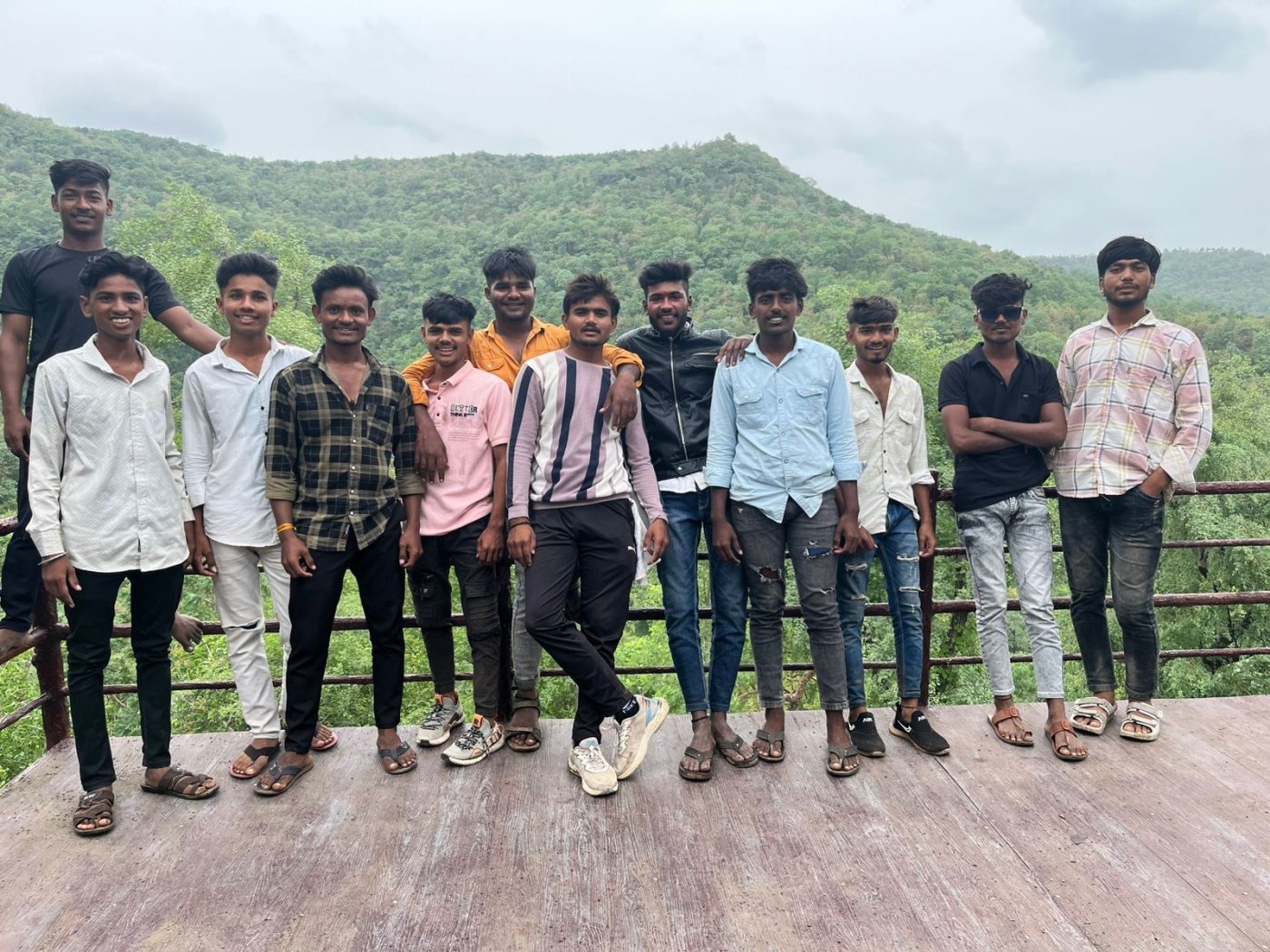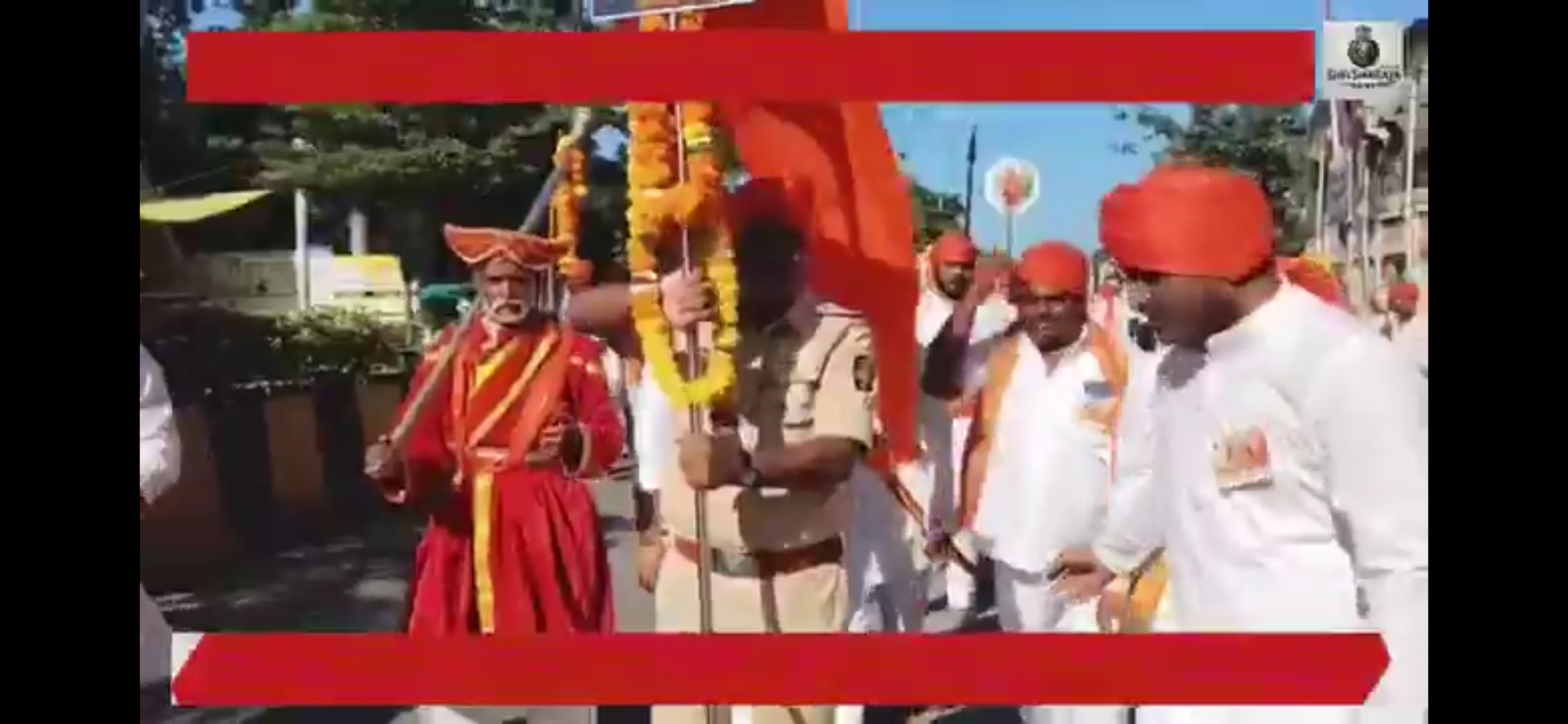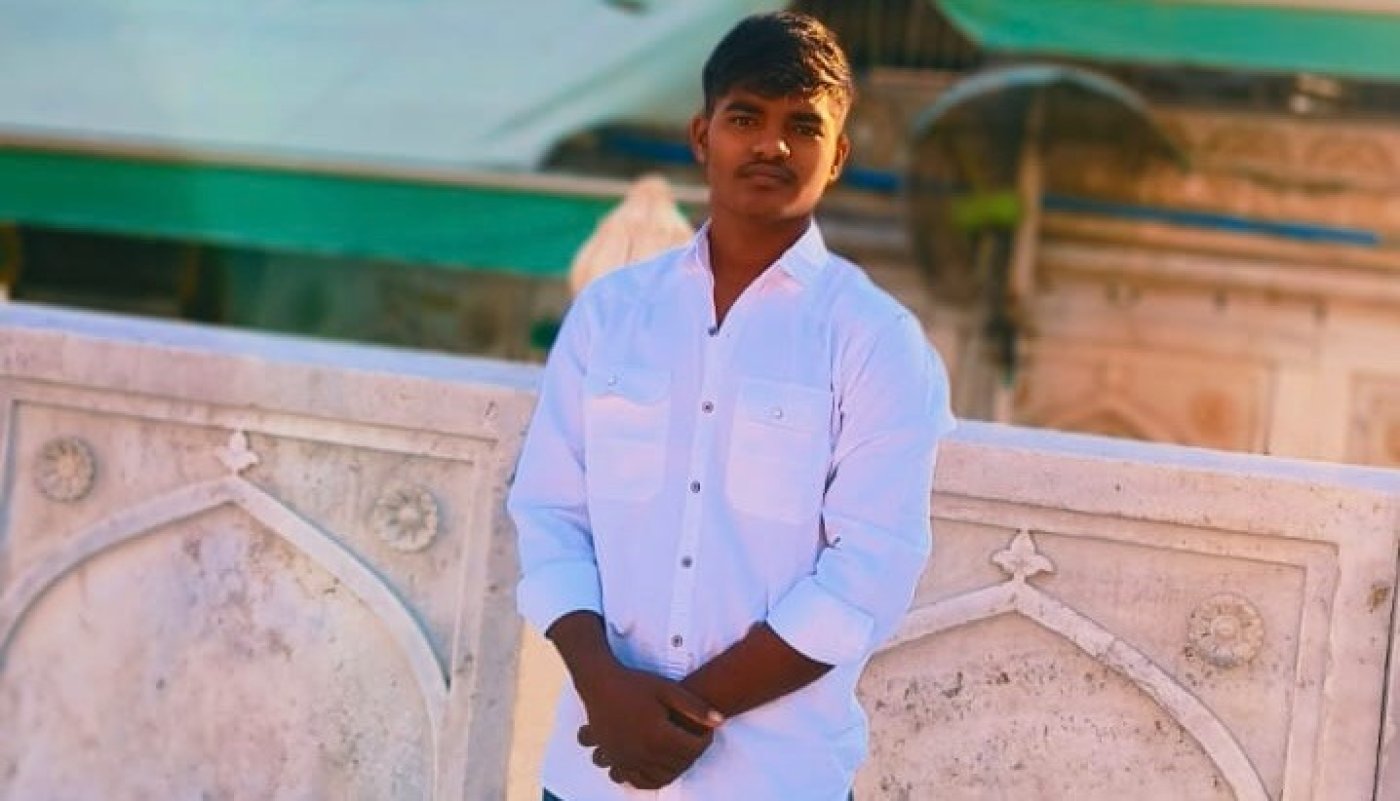Mumbai: Three months after 20-year-old Suleman Pathan was lynched in Jamner, Maharashtra, a local court granted bail to four of the main accused—not for want of evidence, but because police in the northern town of Jamner failed to file the chargesheet within 90 days, as the law requires.
Among those accused were Pathan’s close friends from his village and men associated with Hindu extremist outfit Shiv Pratisthan Hindusthan—the same organisation whose annual Dussehra march in Jamner on 1 October this year was led by some of the police officials part of the investigating team probing the lynching, including the original investigation officer, Murlidhar Kasar.
Thousands of Shiv Pratisthan members marched through the streets of Jamner with tridents, swords and lathis. In some videos of the event, processionists break into Islamophobic slogans. One of them: Durga ban tu Kali ban, kabhi na burkhe wali ban (Become Durga, or Kali, but never become a Muslim woman).
Prime Minister Narendra Modi had once called Shiv Pratisthan’s founder, Manohar Bhide, “param aadarniya guru”—prime respected guru. Bhide has long been close to senior Bharatiya Janata Party (BJP) and Shiv Sena figures, including Maharashtra’s chief minister and deputy chief minister.
On 11 August 2025, Pathan was attacked by a group of Hindu men for sitting in a café with an underage Hindu girl. Members of the mob, which included Pathan’s own friends, are linked to the Shiv Pratisthan.
The attack unfolded over five hours, Pathan was abducted, beaten, stripped and lynched. He died that evening.
The release of the accused has brought new unease to Pathan’s family, who must confront the prospect of sharing their village with his friends-turned-murder-suspects, connected by personal ties and organisational affiliation.
The murder led to significant attention and the Maharashtra government constituted a special investigative team to probe the killing.
The police filed charges against 11 people close to the end of the 90-day period, as the Bharatiya Nagarik Suraksha Sanhita (BNSS) 2023 requires.
‘We Are All Feeling Very Tense Again’
Four of the 11 accused—Abhishek Rajput (22), Suraj Sharma (25), Deepak Ghisadi (20), and Ranjan Matade (48)—were released on bail by the judicial magistrate first class in Jamner on 11 November, three months after the incident.
Rajput and Sharma were close friends of Pathan, as Article 14 reported in August 2025. Pathan’s family described Rajput as “his jaan, his life,” and recounted how Pathan would often embrace Rajput in photographs.

Pathan was known for leading Ganpati celebrations in his predominantly Hindu village. His friends were Hindu, although his family was one of four Muslim households among 600 Hindu families.
With four accused released on bail, Pathan’s family expressed their fear.
“We are all feeling very tense again,” said Mehboob Khan, Pathan’s brother-in-law. “His parents are dreading the prospect of seeing these people roam free in the village.”
The superintendent of police, Maheshwar Reddy, said in September that investigations were progressing and that a “watertight chargesheet” would be filed.
Reddy did not respond to requests for comment on the subsequent delay.
Don’t Know What Happened: Police
Swapnil Shinde, assistant police inspector, said the chargesheet was submitted on 7 November, but was not initially accepted for “technical reasons”.
“We don’t know what happened, but it took four days to accept it, even though we had submitted it on 7 November,” Shinde said. The police have petitioned to cancel the bail, citing threats to evidence and concerns for the victim’s family.
The release of four of the men accused in Pathan’s murder comes at a time when the Uttar Pradesh government, also run, as in Maharashtra, by the BJP recently moved to withdraw charges against 19 men in another lynching case in Dadri.
Court records show the police deadline for filing the chargesheet expired on 9 November, after which the accused filed for bail on 10 November..
‘Indispensable Right of Bail’
The bail order states, “In the present case 90 days period expired on 09.11.2025 and accused get the right on 10.11.2025 (sic)… indispensable right of bail accrued in favour of accused…”
The chargesheet was admitted on 12 November, three days after the deadline
Pathan’s family previously alleged police overlooked key evidence and failed to charge all identified suspects. Khan said the family named 17 individuals, including eyewitness accounts.
“But they only registered charges against 5 people in the first information report (FIR), and when we pointed out that our family had been eyewitnesses, the police would dismiss our pleas to arrest the remaining accused,” said Khan, Pathan’s brother.
Family members reported being threatened when they insisted on further action. Pathan’s father Rahim Khan wrote to Reddy requesting action under the Maharashtra Control of Organised Crime Activities Act (MCOCA), 1999, and against the accused, alleged a conspiracy against his son.
Family Questions Police Impartiality
MCOCA addresses organised crime, and the family would like the law invoked because they believe that Pathan’s murder is a coordinated act, involving members of the Shiv Pratisthan Hindusthan, and that stronger legal provisions are required to address the seriousness and collective planning of the crime.
When there was no response, the family filed a criminal writ petition before the Aurangabad bench of the Bombay High Court, requesting transfer of the probe as per Supreme Court guidelines.
The bail order remains pending hearing in court, but on 1 October, Jamner police officials—including those investigating Pathan’s lynching—were observed leading the annual Dussehra march along with Shiv Pratisthan Hindusthan.
Police officials wore uniform and saffron turbans, leading as flag-bearers. Bhide, founder of the outfit, has previously said that Muslim men in interfaith relationships should be “chopped down”.

Mehboob Khan said seeing police officials as flag-bearers for the same organisation was shocking for the family.
“It had not even been two months since the lynching at that point,” said Khan. “How were we to believe that these same cops would be impartial enough to collect the evidence that is needed to prosecute people of the same outfit?”
Anxious & Afraid
Rahim Khan has been especially anxious after the bail order.
“He keeps thinking about what will happen next, and is constantly afraid that all the accused will be out soon,” said Mehboob Khan.
Khan said repeated dismissal of the family’s concerns since the incident led to “doubts” about whether the police were impartial.
“He feels like he will never get justice for his son’s death,” Khan said.
(Kunal Purohit is an independent journalist and author of the book H-Pop: The Secretive World of Hindutva Popstars.)
Get exclusive access to new databases, expert analyses, weekly newsletters, book excerpts and new ideas on democracy, law and society in India. Subscribe to Article 14.

